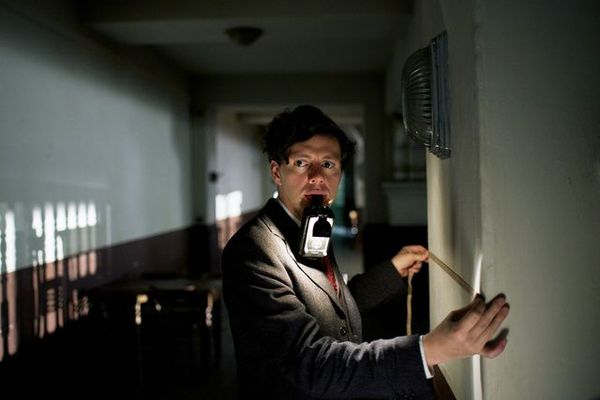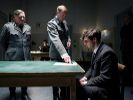Eye For Film >> Movies >> 13 Minutes (2015) Film Review
13 Minutes
Reviewed by: Amber Wilkinson

Downfall director Oliver Hirschbiegel - directing from a script by father and daughter team Fred Léonie-Claire Breinersdorfer - returns to the rise of the Third Reich to explore the aftermath of one moment when one man almost changed the course of history.
The events of November 8, 1939 could have been very different if Hitler hadn't decided to leave Munich's Bürgerbräukeller 13 minutes before the bomb set there by Georg Elser exploded. As it is, not only did the Führer escape unscathed but Elser was, almost simultaneously arrested on the Swiss border for carrying suspicious objects.

Hirschbiegel follows the story from the moment when Elser was setting the bomb, relating what happens to him after his arrest at the same time as flashing back to his younger years in the Lake Constance region, where he was more known for his way with the ladies than his politics.
As Elser in the present faces questioning by police chief Arthur Nebe (Burghart Klaußner) and Gestapo officer Henrich Müller (Johann von Bülow), incredulous at the idea of him being a 'lone wolf', we see Elser in the past fall for the married love of his life Elsa (Katharina Schüttler) and see, as the right began to rise, his path towards radicalisation. Christian Friedel is crucial to the film, showing both the easy charm of the young Elser and the conviction that led him to both create the bomb and stand his ground in the face of interrogation once caught - he captures the essence of an ordinary man facing extraordinary circumstances.
There's also no doubting the film looks good, with Judith Kaufamann's crisp cinematography finding contrast between the earthy brown and pastoral hues of the flashbacks and the altogether colder palette of the interrogation room. Elsewhere, a shot of Hitler at the lectern in Munich also beautifully illustrates the way people were beginning to flock towards him, a scene when a stenographer merely shifts seats in order to be further away from the sound of Elser's pain encapsulates in a moment the sinister creep of attitudes in Germany at the time.
But there's a feeling of both too much gloss and of glossing over details elsewhere. By trying to cover so much ground, Hirschbiegel has no time to linger and the romance aspect of the past makes the rest feel over-simplified. While there is no doubting the good intentions of trying to emphasise the man rather than be over-dramatic - particularly as Elser spent a long time unrecognised in Germany - the end result isn't as compelling as it the material ought to be.
Reviewed on: 16 Jul 2015


















